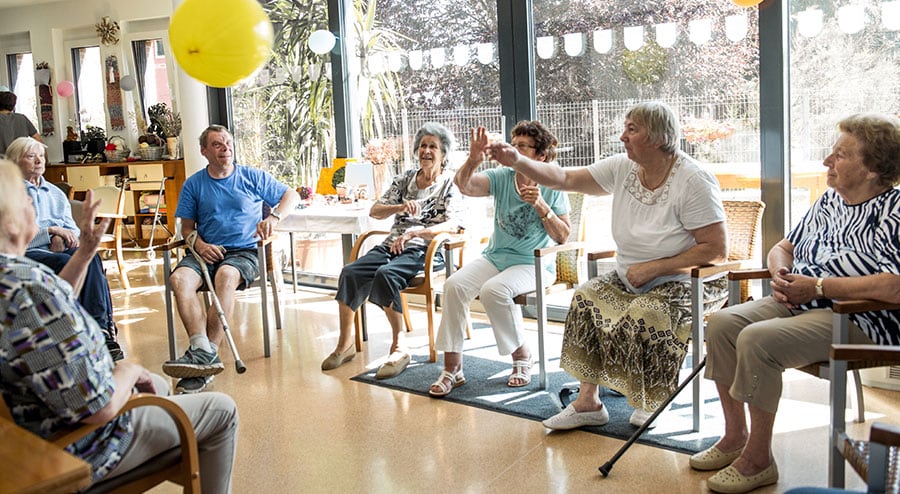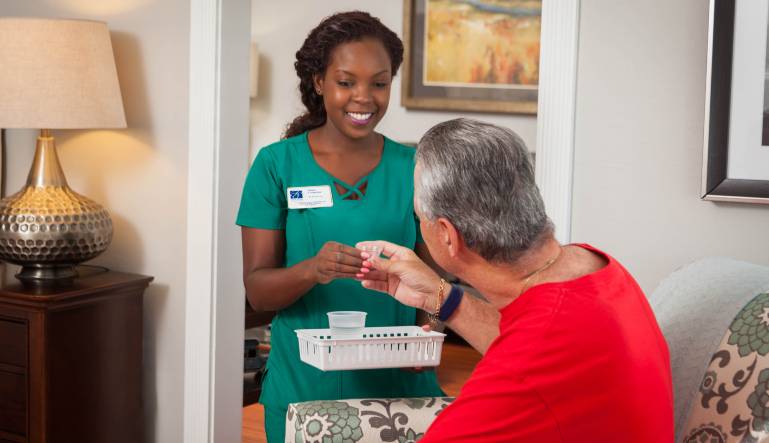Compare the best Assisted Living homes in your area today.
Compare the best Assisted Living homes in your area today.
Blog Article
Exactly How Helped Living Facilities Enhance Lifestyle for Those With Dementia
The assimilation of interesting programs and family members involvement even more enhances the citizens' experience. The intricacies of mental deterioration treatment proceed to evolve, prompting a more detailed evaluation of how these facilities adjust and innovate to meet the challenges faced by locals and their households.
Personalized Care Plans
(Dementia Care Charlotte)Oftentimes, people with dementia need tailored support that resolves their unique needs and preferences. Individualized treatment strategies are essential in assisted living settings, as they guarantee that each resident gets proper interest and solutions. These strategies are established collaboratively, including health care professionals, caregivers, and member of the family to develop a comprehensive overview of the individual's clinical background, cognitive capacities, and individual interests.
A well-structured customized care strategy commonly consists of certain objectives associated with health and wellness management, day-to-day tasks, and social interaction. It represents the individual's cognitive decline while promoting independence and self-respect. Routine evaluations and updates to the care plan are essential, as they enable alterations based upon the citizen's progressing condition and choices.
Trick elements of these plans usually entail medicine management, behavior support strategies, and dietary guidelines tailored to the person's requirements (Assisted Living). By concentrating on customized treatment, helped living facilities can cultivate an encouraging setting that improves the quality of life for people with dementia, eventually adding to their overall wellness and happiness. This individualized strategy appreciates the uniqueness of each homeowner, ensuring they obtain the caring care they need

Involving Activities and Programs
Engaging homeowners in meaningful tasks and programs is essential for boosting the top quality of life for individuals with mental deterioration. These activities not just supply satisfaction however additionally stimulate cognitive feature and promote social communication, which can mitigate feelings of seclusion often experienced by citizens.

Additionally, personalized programs are important in making sure that each citizen's one-of-a-kind choices and capacities are recognized. This tailored approach encourages participation, enhances self-confidence, and offers a feeling of success.
In addition, normal assessments of locals' interests can assist personnel customize and adjust tasks to better suit evolving needs. By focusing on interesting tasks and programs, helped living centers can significantly boost the total experience and psychological health and wellness of individuals dealing with dementia.
Safe and Supportive Setting
Developing a safe and supportive setting is essential for individuals with mental deterioration, as it straight affects their well-being and quality of life. Aided living facilities are made with specific attributes that promote safety and security while fostering a complacency and comfort. These environments focus on availability, with designs that lessen complication and motivate independence, permitting citizens to browse their surroundings much more easily.
Precaution, such as safe entrances and leaves, avoid straying and unauthorized access, which are important considerations for people with dementia (Memory Care). Personnel are trained to identify the distinct demands of locals, providing tailored assistance and guidance to ensure their security. Moreover, the unification of calming shades and familiar items can help minimize anxiousness and disorientation, producing an extra comforting environment.
In enhancement to physical safety and security, emotional support is extremely important. Facilities frequently utilize team that are not only proficient in caregiving yet also learnt compassion and communication, promoting depend on and relationship with residents. This alternative technique adds to a caring setting where individuals feel valued and understood, eventually improving their overall lifestyle.
Social Communication and Area
An encouraging environment not only focuses on safety but also fosters chances for social interaction and neighborhood interaction, which are crucial for people with mental deterioration. In nursing home, structured activities and communal spaces encourage locals to get in touch with one another, decreasing feelings of isolation frequently experienced by those with cognitive disabilities.
Social communication plays a considerable function in improving emotional well-being and cognitive function (Assisted Living). Involving with peers in team activities such as video games, arts and crafts, or workout not just promotes cognitive abilities yet also nurtures a sense of belonging. Facilities frequently organize occasions that advertise socializing, enabling locals to build relationships and share experiences, which can be particularly beneficial for those with mental deterioration
In addition, a lively neighborhood ambience can improve the general lifestyle for residents. Personnel are trained to facilitate communications and support residents in creating significant connections. By developing a society of interaction, assisted living centers assist individuals with mental deterioration preserve social abilities and enhance their mood, inevitably adding to a more meeting life experience. This community-oriented technique is important in taking care of the difficulties connected with mental deterioration, promoting a feeling of function and connection for locals.
Family Members Participation and Assistance
Household participation is essential in sustaining individuals with mental deterioration in assisted living settings. Actively involving relative not only gives emotional convenience to homeowners however additionally fosters a feeling of belonging and continuity in their lives. When households participate in treatment planning and everyday tasks, they contribute useful understandings about the person's choices, history, and needs, which can improve tailored care.
Additionally, click over here normal family check outs can dramatically improve the emotional well-being of citizens, lowering sensations of isolation and anxiety. Member of the family can additionally aid in maintaining cognitive function by engaging their liked ones in familiar conversations and activities. This interaction reinforces individuality and helps homeowners feel valued and understood.

Conclusion
In conclusion, aided living facilities dramatically improve the high quality of life for people with mental deterioration with personalized treatment plans, involving tasks, and a risk-free environment. Jointly, these variables produce an alternative strategy to care that addresses the distinct needs of individuals with dementia, advertising overall health and self-respect.
Report this page